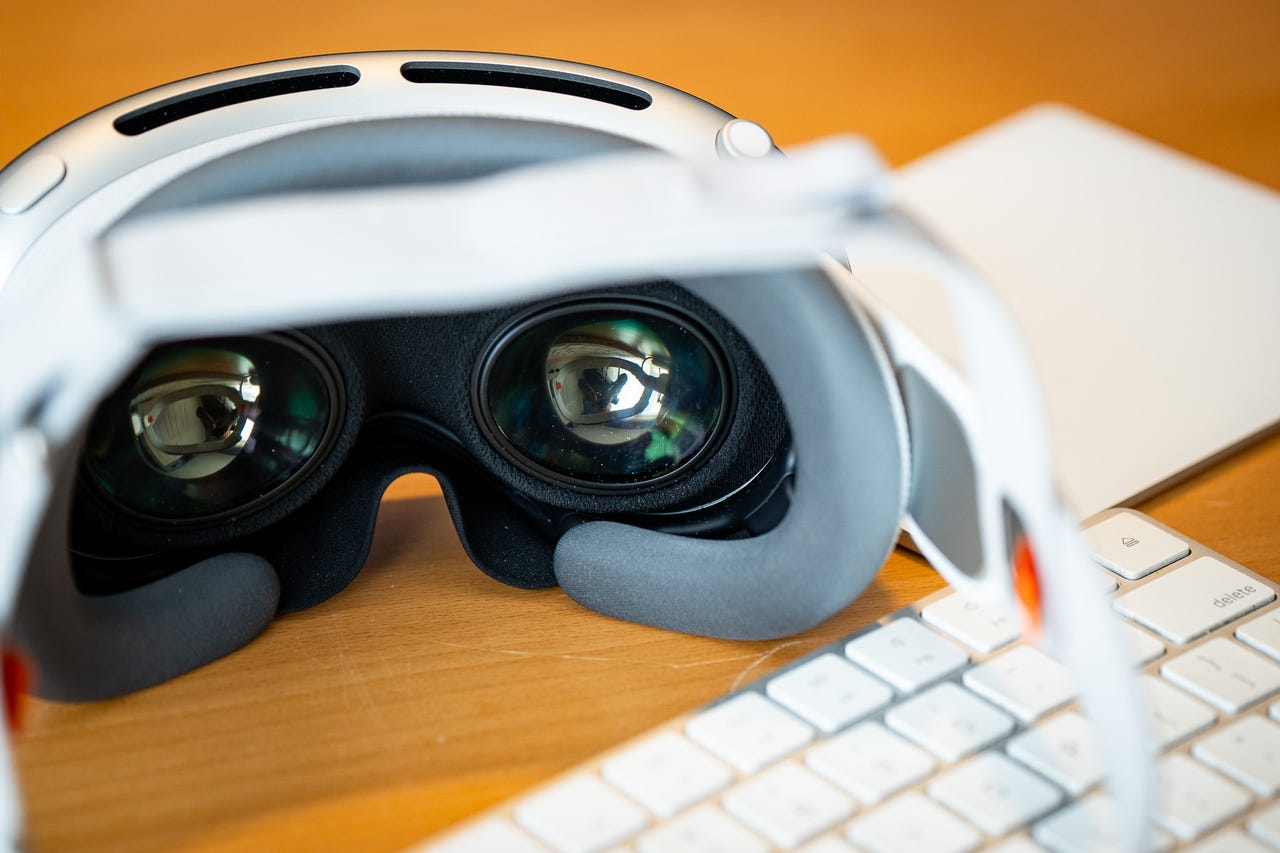'ZDNET Recommends': What exactly does it mean?
ZDNET's recommendations are based on many hours of testing, research, and comparison shopping. We gather data from the best available sources, including vendor and retailer listings as well as other relevant and independent reviews sites. And we pore over customer reviews to find out what matters to real people who already own and use the products and services we’re assessing.
When you click through from our site to a retailer and buy a product or service, we may earn affiliate commissions. This helps support our work, but does not affect what we cover or how, and it does not affect the price you pay. Neither ZDNET nor the author are compensated for these independent reviews. Indeed, we follow strict guidelines that ensure our editorial content is never influenced by advertisers.
ZDNET's editorial team writes on behalf of you, our reader. Our goal is to deliver the most accurate information and the most knowledgeable advice possible in order to help you make smarter buying decisions on tech gear and a wide array of products and services. Our editors thoroughly review and fact-check every article to ensure that our content meets the highest standards. If we have made an error or published misleading information, we will correct or clarify the article. If you see inaccuracies in our content, please report the mistake via this form.
These are the Vision Pro apps Apple says will transform healthcare

Apple is showcasing new apps created for its Vision Pro headset that offer an immersive journey into medicine, science, and anatomy. From surgical planning and medical training to mental health support, interactive Vision Pro apps enable users to explore the human body and dive deep into medical procedures, offering immersive experiences for medical professionals and patients alike.
Also: Apple Vision Pro review: Fascinating, flawed, and needs to fix 5 things
Imagine having your surgeon prepare for your hip transplant by practicing on a Vision Pro, a nurse being trained on new equipment in a virtual environment provided by the headset, or a medical student learning about the human anatomy with immersive layered imaging.
These scenarios are made possible by the Vision Pro mixed-reality experience, which offers users an intuitive way to interact with detailed views of the human body and virtual environments.
A look at Epic Systems' AVP app to give clinicians a spatial computing view into their patients' records.
"At Apple, we believe technology can play an important role in the evolution of healthcare," said Dr. Sumbul Desai, Apple's vice president of health. "With the ability to transform a user's space, display 3D objects at life-size, and see all relevant data in one view, the opportunities for health developers to use Apple Vision Pro to help improve procedural planning, education, and outcomes are limitless."
Through the mixed reality headset, these health apps integrate digital content with the real world to offer immersive spatial experiences to the wearer. Here are just a few of the health apps that Apple shared:
- MyMako by Stryker enhances surgical planning.
- CyranoHealth by Boston Children's Hospital will train health professionals on new equipment in a virtual environment.
- Cinematic Reality by Siemens Healthineers explores human anatomy for clinical and educational purposes.
- Visage Ease VP has been used by UC San Diego Health to improve primary care and create collaborative spaces in healthcare. The app offers spatial experiences for diagnostic imaging and multimedia.
- Epic Spatial Computing Concept by Epic Systems will enable clinicians to interact with health records.
- Xaia by Cedars-Sinai offers AI-powered mental health support and meditation on the AVP.
- TRIPP Visionoffers guided breathing exercises and sleep aids to enhance the user's mental well-being.
Also: 10 ways Apple plans to revolutionize health tracking
"Apple Vision Pro's stunning display offers a gateway into a world of immersive, interactive behavioral health support -- a quantum leap beyond previous technologies," said Dr. Brennan Spiegel, director of Health Services Research at Cedars-Sinai.
Cedars-Sinai is behind Xaia, an AI-enabled digital avatar that offers mental health support conversationally. Xaia can help users talk about their state of mind, do breathing exercises, or take them to a relaxing virtual environment to meditate.
Also: Inside VisionOS: 18 things developers need to know about coding for Apple Vision Pro
"With Xaia, we leverage every pixel of that remarkable resolution and the full spectrum of vivid colors to craft a form of immersive therapy that's engaging and deeply personal. With this remarkable device, our team was able to completely reimagine how spatial computing can support behavioral health and overall well-being in ways never before possible," Dr. Spiegel added.
